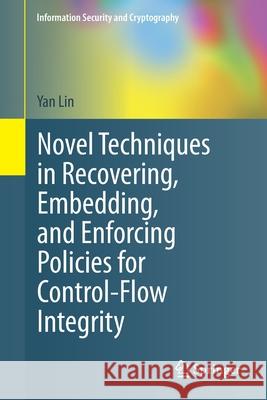Novel Techniques in Recovering, Embedding, and Enforcing Policies for Control-Flow Integrity » książka
topmenu
Novel Techniques in Recovering, Embedding, and Enforcing Policies for Control-Flow Integrity
ISBN-13: 9783030731403 / Angielski / Miękka / 2021 / 95 str.
Kategorie:
Kategorie BISAC:
Wydawca:
Springer
Seria wydawnicza:
Język:
Angielski
ISBN-13:
9783030731403
Rok wydania:
2021
Wydanie:
2021
Numer serii:
000261314
Ilość stron:
95
Waga:
0.17 kg
Wymiary:
23.39 x 15.6 x 0.58
Oprawa:
Miękka
Wolumenów:
01
Dodatkowe informacje:
Bibliografia
Wydanie ilustrowane
Wydanie ilustrowane











